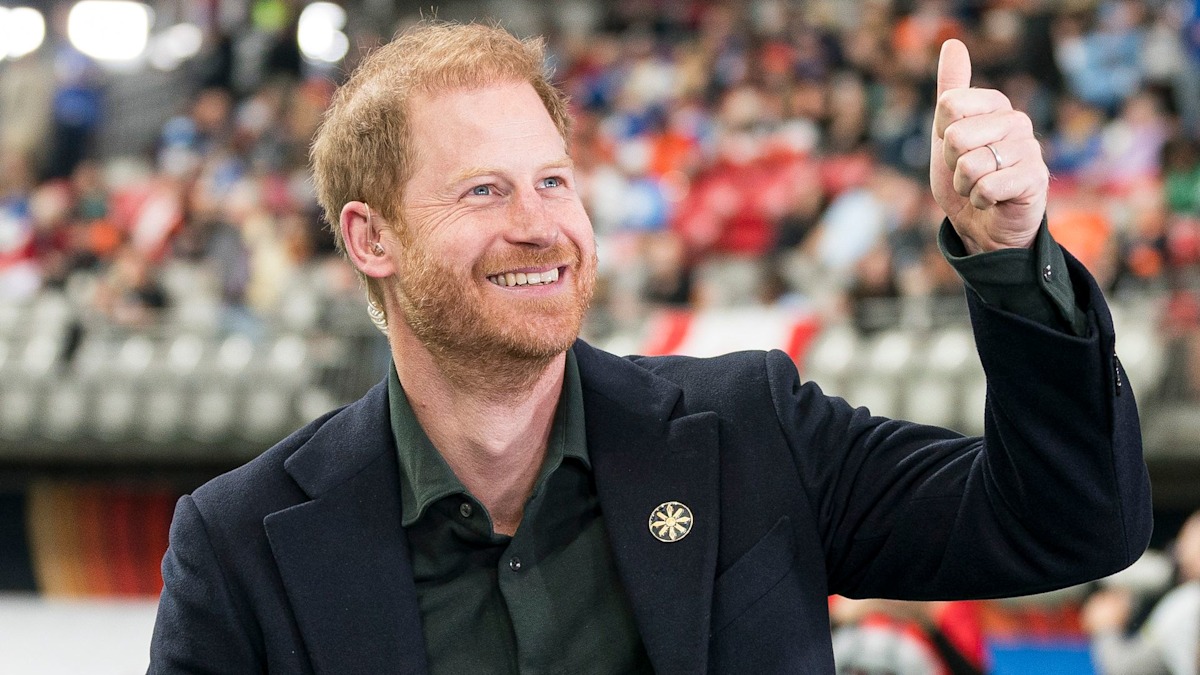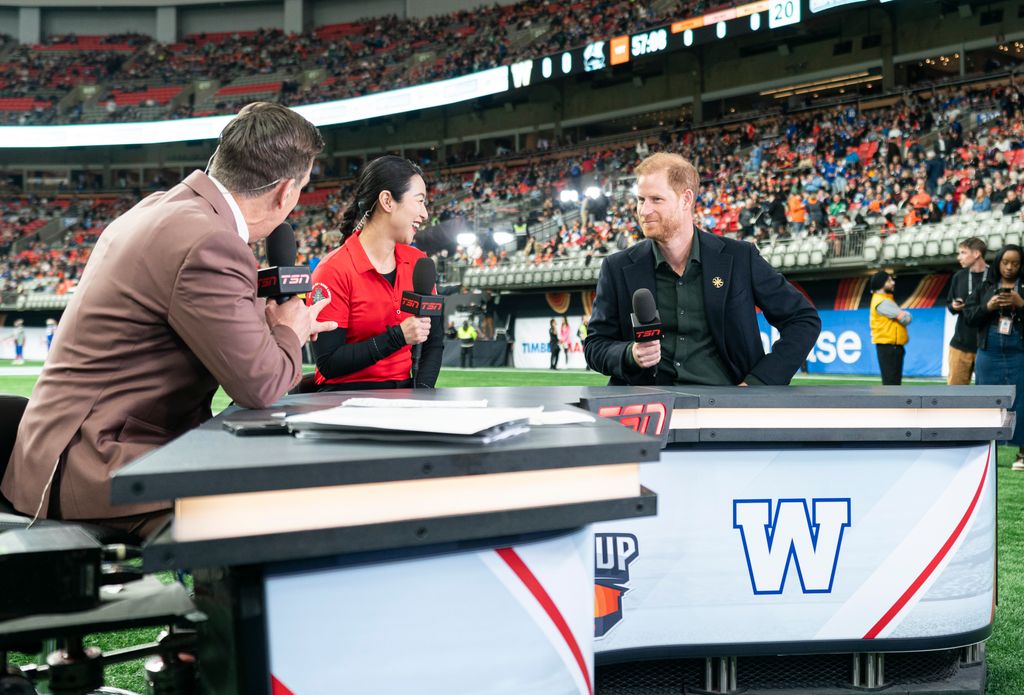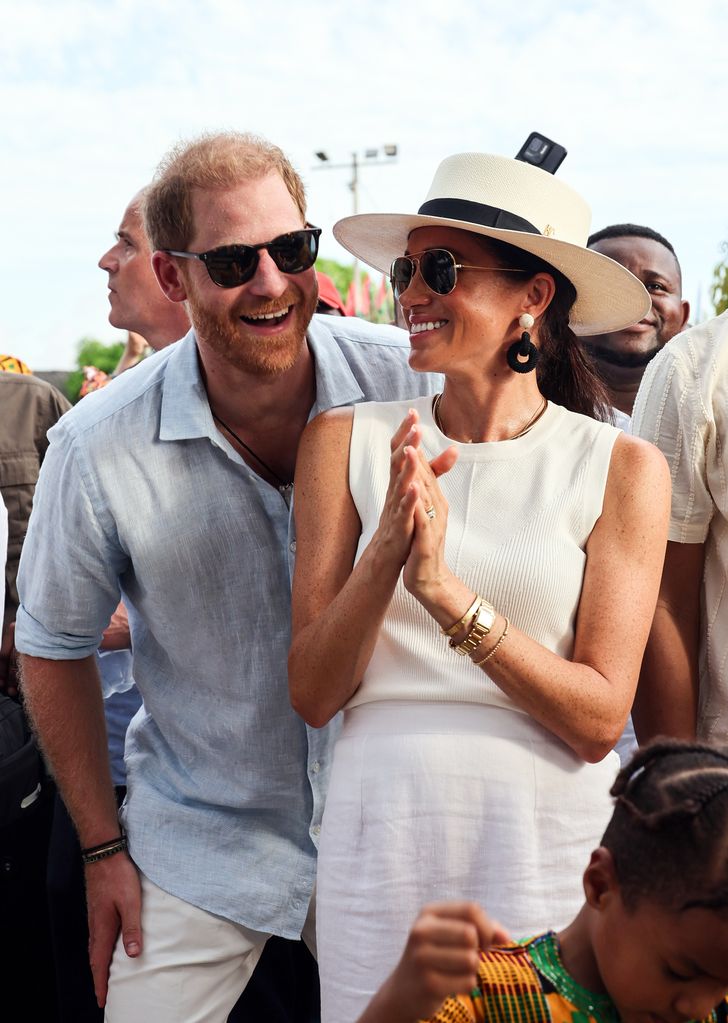It has been over four years since Prince Harry bid farewell to his royal duties and life in London, trading it for the sunny shores of Montecito, California, alongside his wife Meghan and their two children, Archie and Lilibet.
But while Harry, 40, may have left his homeland physically, it seems his accent hasn’t been immune to the Californian influence.
The Duke of Sussex, once known for his crisp Etonian English, appears to be adopting more Americanisms in both his speech and mannerisms.
Fans were quick to point this out following the release of a lighthearted video in which Harry visited New York tattoo parlour East Side Ink for a fake tattoo as part of a promotional skit for The Invictus Games.
The two-minute clip features Harry casually chatting with musician Jelly Roll, and it wasn’t just his humor that got people talking—it was his increasingly “American” way of speaking.
“He totally has an American accent now,” one fan remarked on X, formerly Twitter, while another noted, “Prince Harry’s British accent sounds more diluted to make way for the American accent.” A third added, “It sounds like Prince Harry is losing his British accent.”
In the clip, Harry is heard using distinctly American phrases, saying “Screw it, let’s do it” and calling the tattoo artist “dude.” He also jokingly suggested putting the tattoo on his “a**,” adopting the American pronunciation rather than the British “a***.” Even the intonation in his speech—raising his voice at the end of sentences—is reminiscent of common American patterns.
Anthony Shuster, a communication coach and accent specialist, offered some insight into this linguistic shift. “You notice that there’s a huge difference between the way the King speaks and the way Harry now speaks,” he explained to the Telegraph. “There’s very little articulation at all in his speech—it’s far more relaxed.”
Anthony added that Harry’s accent transformation likely began years ago. “In 2019, after meeting Meghan, there was already a noticeable shift,” he said.
One telling moment came when Harry introduced baby Archie to the world, saying, “Wow, he’s already got a little bit of facial hair as well.” The way he softened the T in “little” to a D, making it sound like “liddle,” is a hallmark of American speech.
Meghan, a Los Angeles native, has undoubtedly played a role in this linguistic evolution. Language experts suggest that being surrounded by someone with a different accent or speech patterns can naturally influence one’s own manner of speaking. In Harry’s case, his close relationship with Meghan and his immersion in American culture may have contributed to these changes. As former King’s College language specialist Tony Thorne put it during an NBC broadcast, “Interacting at a close level with someone all the time can cause us to pick up their speaking habits.”
Harry himself has expressed his love for life in the United States. Earlier this year, he shared with Good Morning America that he “loves every single day” in California and even hinted at the possibility of pursuing U.S. citizenship.
“Our kids are bilingual, so they are going to flourish here,” he said, referring to Archie, five, and Lilibet, three, who are being raised in an environment blending both British and American influences.
While some fans find Harry’s accent evolution surprising, many see it as a natural result of his life in America. “He’s picking up American words. That’s good,” one fan commented, while another said, “American slang, a bit of the accent, love it!”
Interestingly, this isn’t the first time Harry’s accent has made headlines. In 2021, during recordings for the couple’s podcast, Harry used terms like “awesome” and “you guys,” further highlighting his embrace of American vernacular.
Some experts believe this linguistic adaptation might also stem from a desire to connect with his new audience. “It could be that Prince Harry has started to borrow American phrases and words to fit in and be understood better by the American press,” noted Anthony.
However, Harry’s accent transformation hasn’t gone unnoticed back home in Britain. Reflecting on his earlier years, Shuster revisited a 2004 clip of Harry during his gap year in Lesotho, where the young royal spoke with the distinctly British tones of his upbringing. “He said things like ‘different country’ with clear articulation,” Anthony observed, contrasting it with Harry’s more recent speech patterns.
Read the full article here








